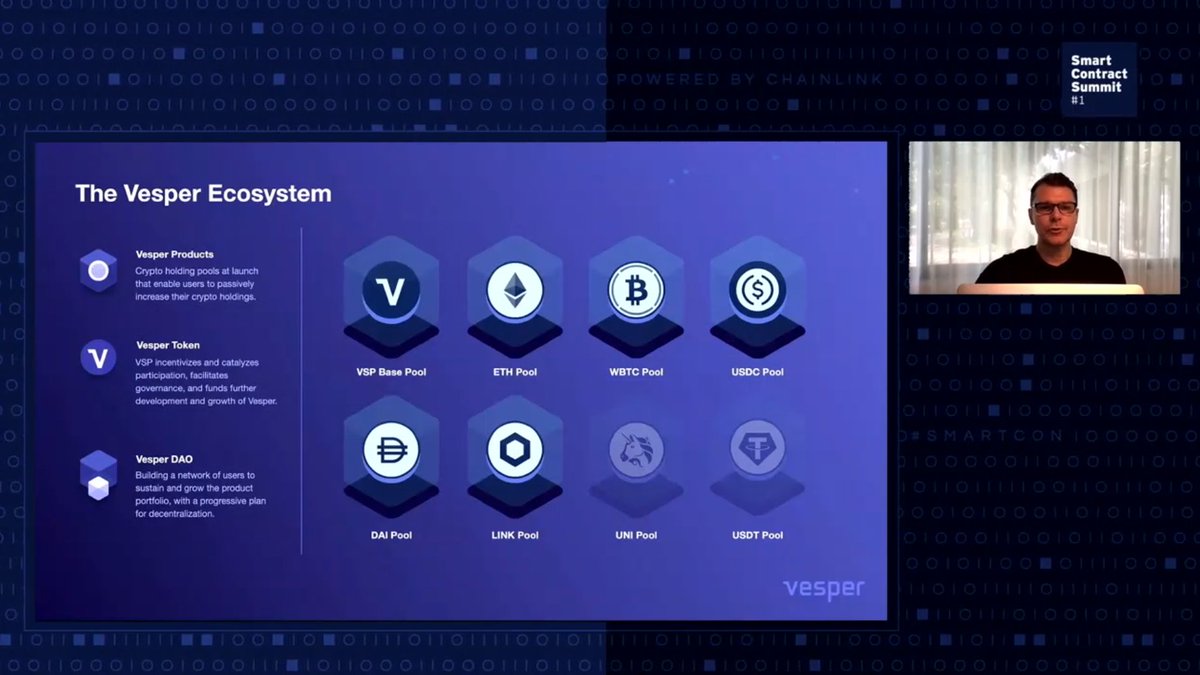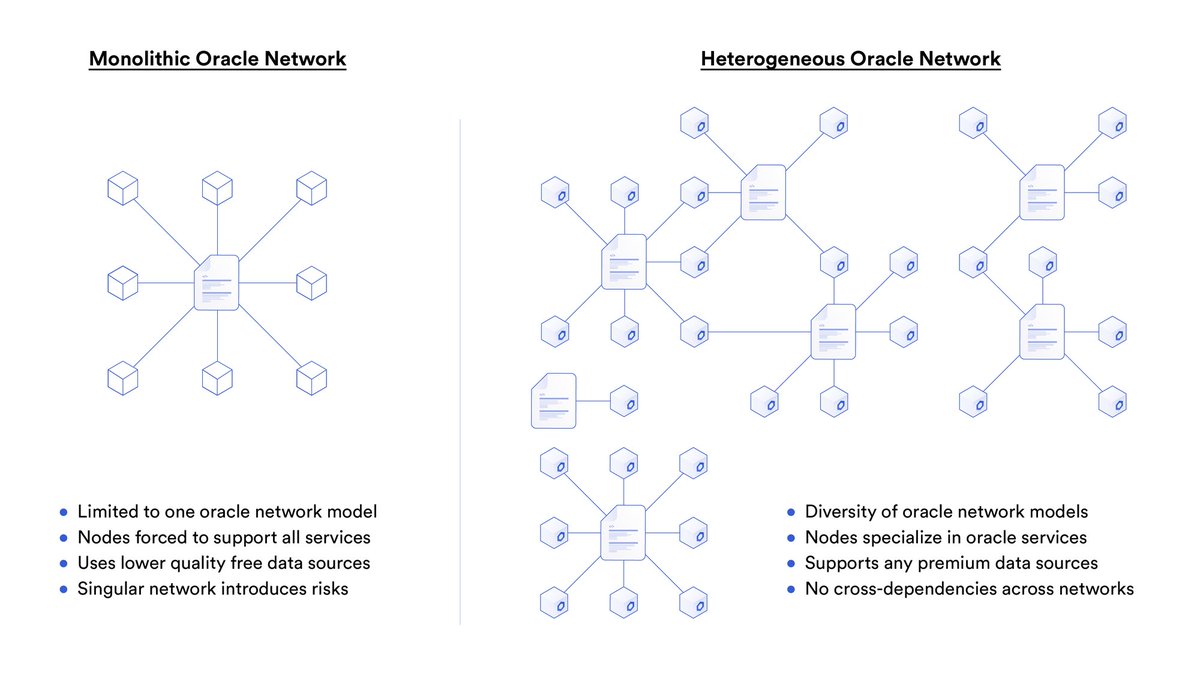DeFi is here to stay, Cambrian explosion of innovation
$77B market, in a year add a zero to that
Vesper has over a billion in TVL
$77B market, in a year add a zero to that
Vesper has over a billion in TVL

Biggest barrier to DeFi is accessibility
Need a long term vision
Need to deal with high fees, will decrease over time
Need a long term vision
Need to deal with high fees, will decrease over time

Opportunity to create dashboard to DeFi in one interface
Permissioned pools getting developed
Need to incentivize community
Multi-chain approach
Permissioned pools getting developed
Need to incentivize community
Multi-chain approach

Work with #Chainlink to prove an accurate view of TVL on Vesper
Working with cryptos since 2015, don't want to work in a vaccum
Minimizing high fees, multi-chain
Ethereum is grand central station, has everything you need but given volume, fees are high

Working with cryptos since 2015, don't want to work in a vaccum
Minimizing high fees, multi-chain
Ethereum is grand central station, has everything you need but given volume, fees are high


• • •
Missing some Tweet in this thread? You can try to
force a refresh























